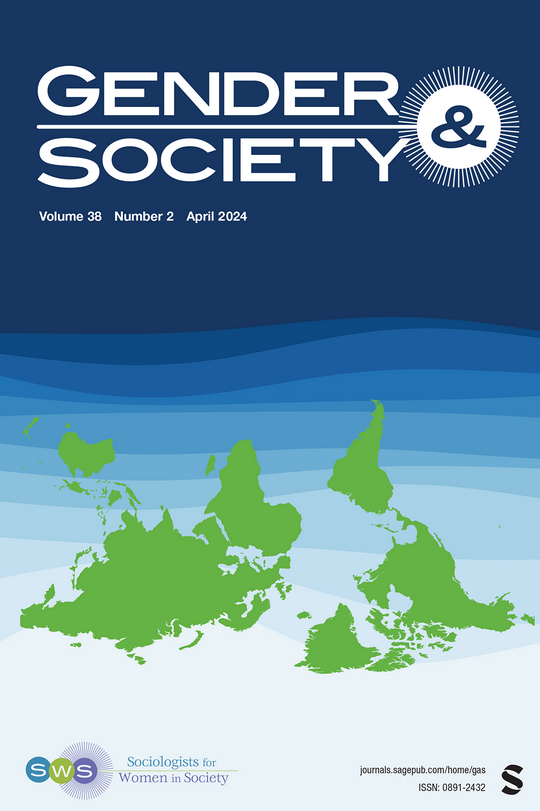和谐的神话:决策、婚姻权力和性别不平等的持续存在
IF 7.2
1区 社会学
Q1 SOCIOLOGY
引用次数: 0
摘要
无形的力量--由于人们心照不宣地认为维持现状是自然的或不可避免的,因而能够抗拒改变自己的行为--支撑着不同性别婚姻中的性别不平等。然而,阿弗克-科姆特(Aafke Komter)在 30 多年前记录的 "共识"--即男性和女性都认可男性至上,认为女性享受家务劳动、男性追求职业抱负是天经地义的--在受过大学教育的中上层阶级中已经弱化了。我们要问:在当代受过高等教育的夫妇中,维护性别权力失衡的新共识是什么?我们通过对 44 对正在做出职业和家庭决定的高学历夫妇的 112 次访谈,更新了有关隐形权力的理论。对不同时期工作和家庭领域的决策过程和结果(包括明显达成一致的情况)进行的研究表明,现在维护男性利益的共识是夫妻双方坚信他们在践行相互性。伴侣们相信,通过强调 "我们 "和平衡决策组合,他们在共同追求个人和家庭的最大利益,这有助于他们忽略那些试图将权力失衡最小化的不成功尝试。只要实践相互性的努力掩盖了对其成功与否的批判性评价,那么不同性别夫妻在实现性别平等方面的进展就很可能会停滞不前。本文章由计算机程序翻译,如有差异,请以英文原文为准。
THE MYTH OF MUTUALITY: Decision-Making, Marital Power, and the Persistence of Gender Inequality
Invisible power—the ability to resist changing one’s behavior because of an unspoken consensus that the status quo is natural or inevitable—upholds gender inequality in different-gender marriages. Yet the “consensus” that Aafke Komter documented more than 30 years ago—one in which both men and women endorsed male primacy and believed it natural for women to enjoy housework and men to pursue professional ambition—has weakened among the college-educated, upper middle class. We ask: What is the new consensus upholding gendered power imbalances among contemporary highly educated couples? We draw on 112 interviews with members of 44 such couples making career and family decisions to update theorizing on invisible power. Examination of decision-making processes and outcomes across work and family domains over time, including in cases of apparent agreement, reveals the consensus now upholding men’s interests to be couples’ conviction they are practicing mutuality. Partners’ belief that they are mutually pursuing both individuals’ and the family’s best interests by emphasizing “us” and balancing a decision portfolio helps them overlook unsuccessful attempts to minimize power imbalances. Progress toward gender equality among different-gender couples will likely remain stalled as long as efforts to practice mutuality overshadow critical evaluation of their success.
求助全文
通过发布文献求助,成功后即可免费获取论文全文。
去求助
来源期刊

Gender & Society
Multiple-
CiteScore
9.70
自引率
3.60%
发文量
78
期刊介绍:
Gender & Society promotes feminist scholarship and the social scientific study of gender. Gender & Society publishes theoretically engaged and methodologically rigorous articles that make original contributions to gender theory. The journal takes a multidisciplinary, intersectional, and global approach to gender analyses.
 求助内容:
求助内容: 应助结果提醒方式:
应助结果提醒方式:


